The lunartail puffer fish was the species that caused the death of one person and sickened eight in Nantou County last month, the Food and Drug Administration (FDA) said yesterday, adding that it is toxic enough to kill a person who eats only two pieces of sashimi.
Through DNA analysis of the fish that poisoned nine diners on Nov. 25, the agency identified the fish as a lunartail, or Lagocephalus lunaris, FDA Research and Analysis division chief Wang Der-yuan (王德原) told a news conference.
A sample taken from the sashimi served had 134.4mg per kilogram of tetrodotoxin (TTX), a defensive neurotoxin found in many types of puffer fish, Wang said.
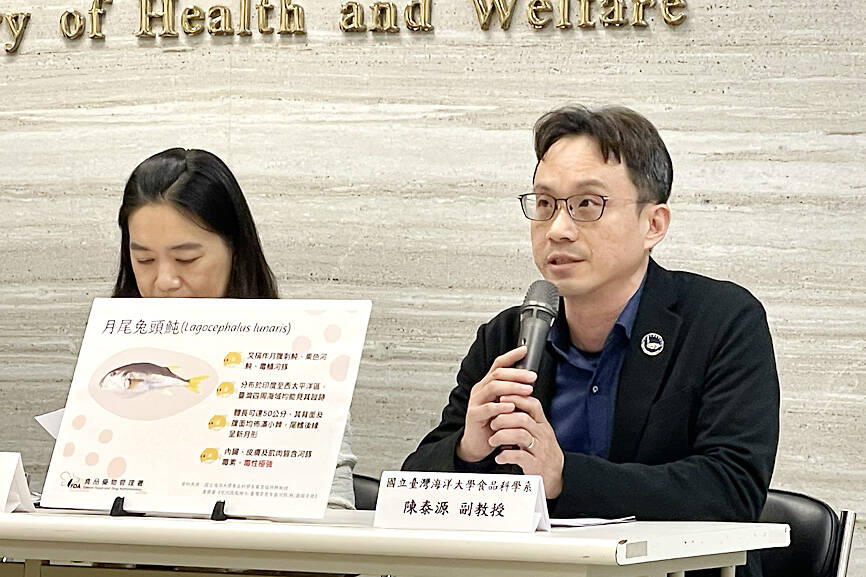
Photo: Chiu Chih-jou, Taipei Times
Samples from the cooked fish and soup showed TTX levels of 33.48mg per kilogram and 31.86mg per kilogram respectively, he said.
The internal organs and skin of the fish presented the most TTX, but further analysis would be necessary to quantify the precise levels, Wang added.
TTX is highly toxic, with consumption of only 0.2mg leading to poisoning symptoms and 1mg to 2mg being potentially fatal, he said.
Based on the FDA’s findings, each 10mg piece of sashimi contained about 1.34mg of TTX, meaning that eating two pieces could be fatal, he said.
The lunartail puffer fish is common in the waters around Taiwan, National Taiwan Ocean University Department of Food Science associate professor Chen Tai-yuan (陳泰源) said.
Its plump appearance makes it attractive to many seafood enthusiasts, but its viscera and skin contain particularly high levels of TTX, which cannot be removed through cooking, he said.
Including last month’s case, four cases of puffer fish poisoning have been recorded in Taiwan over the past decade, with 17 people becoming ill and one dying, FDA Deputy Director Lin Chin-fu (林金富) said.
Japan reported 180 cases from 2013 to last year, with 246 people becoming ill and five dying, despite it having a licensing system for the sale of puffer fish, he said.
Due to the high risk involved, the FDA does not have a licensing system for the sale of puffer fish and does not plan to instate one, he added.
Under the Act Governing Food Safety and Sanitation (食品安全衛生管理法), food or food additives that contain toxins are not allowed to be produced, processed, stored, sold or given as gifts, so the FDA discourages the sale and consumption of puffer fish, Lin said.
Restaurants that serve puffer fish resulting in poisoning face a fine of NT$60,000 to NT$200 million (US$1,904 to US$6.35 million), and if the case is serious, the restaurant could be ordered to shut down and the manager could face a prison sentence of up to seven years, he said.
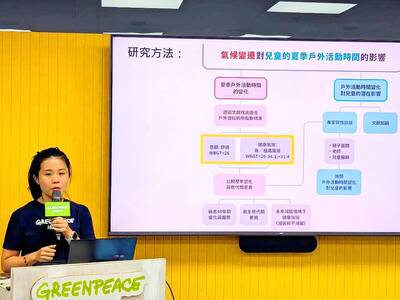
The government should improve children’s outdoor spaces and accelerate carbon reduction programs, as the risk of heat-related injury due to high summer temperatures rises each year, Greenpeace told a news conference yesterday. Greenpeace examined summer temperatures in Taipei, New Taipei City, Taoyuan, Hsinchu City, Taichung, Tainan and Kaohsiung to determine the effects of high temperatures and climate change on children’s outdoor activities, citing data garnered by China Medical University, which defines a wet-bulb globe temperature (WBGT) of 29°C or higher as posing the risk of heat-related injury. According to the Central Weather Administration, WBGT, commonly referred to as the heat index, estimates
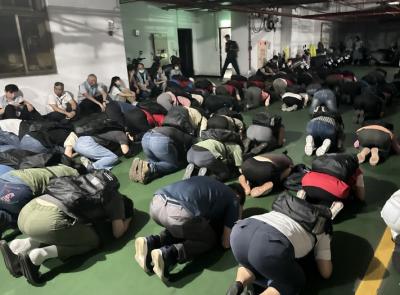
Taipei and other northern cities are to host air-raid drills from 1:30pm to 2pm tomorrow as part of urban resilience drills held alongside the Han Kuang exercises, Taiwan’s largest annual military exercises. Taipei, New Taipei City, Keelung, Taoyuan, Yilan County, Hsinchu City and Hsinchu County are to hold the annual Wanan air defense exercise tomorrow, following similar drills held in central and southern Taiwan yesterday and today respectively. The Taipei Mass Rapid Transit (MRT) and Maokong Gondola are to run as usual, although stations and passenger parking lots would have an “entry only, no exit” policy once air raid sirens sound, Taipei
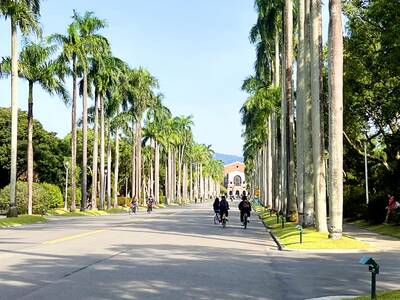
Taipei placed 14th in the Quacquarelli Symonds (QS) Best Student Cities 2026 list, its highest ever, according to results released yesterday. With an overall score of 89.1, the city climbed 12 places from the previous year, surpassing its previous best ranking of 17th in 2019. Taipei is “one of Asia’s leading higher-education hubs,” with strong employer activity scores and students “enjoying their experience of the city and often keen to stay after graduation,” a QS staff writer said. In addition to Taipei, Hsinchu (71st), Tainan (92nd), Taichung (113th) and Taoyuan (130th) also made QS’ list of the top 150 student cities. Hsinchu showed the
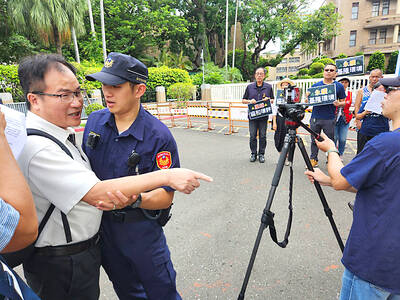
Environmental groups yesterday filed an appeal with the Executive Yuan, seeking to revoke the environmental impact assessment (EIA) conditionally approved in February for the Hsieh-ho Power Plant’s planned fourth liquefied natural gas (LNG) receiving station off the coast of Keelung. The appeal was filed jointly by the Protect Waimushan Seashore Action Group, the Wild at Heart Legal Defense Association and the Keelung City Taiwan Head Cultural Association, which together held a news conference outside the Executive Yuan in Taipei. Explaining the reasons for the appeal, Wang Hsing-chih (王醒之) of the Protect Waimushan Seashore Action Group said that the EIA failed to address